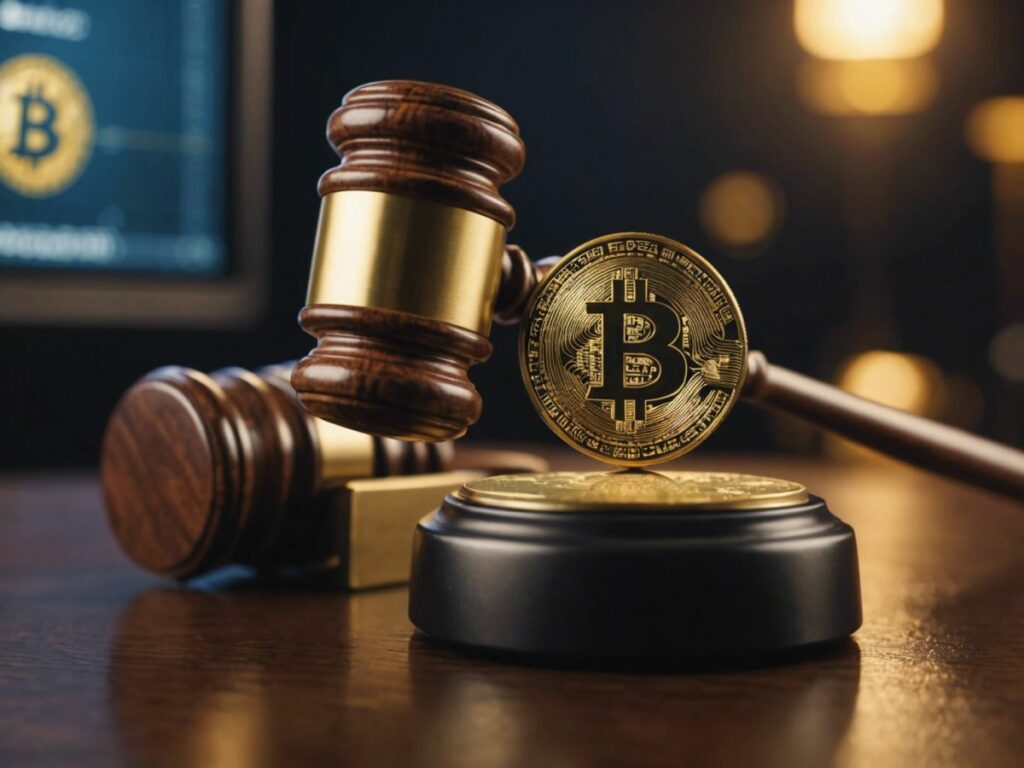In 2023, the U.S. Securities and Exchange Commission (SEC) launched lawsuits against the world’s three largest crypto exchanges – Binance, Coinbase, and Kraken – marking the beginning of a stringent regulatory era for the previously unrestrained crypto industry. These lawsuits have significant implications for the future of cryptocurrencies and the exchanges that trade them.
Key Takeaways
- The SEC has filed lawsuits against Binance, Coinbase, and Kraken, accusing them of various regulatory violations.
- The lawsuits could transform the crypto market by asserting the SEC’s jurisdiction over the industry.
- Major cryptocurrencies like Solana (SOL), Cardano (ADA), and Polygon (MATIC) have been identified as securities by the SEC.
- The lawsuits are expected to extend well into 2024, with significant financial penalties and operational changes for the exchanges involved.
SEC vs. Binance: Accusations and Implications
On June 5, 2023, the SEC filed a lawsuit against Binance, accusing the exchange of running an unregistered platform, selling Binance-owned cryptos BNB and BUSD, and offering staking programs without proper registration. The SEC also alleged that Binance misrepresented its investor protection controls and used customer funds for its own interests.
The lawsuit against Binance is particularly severe, with accusations of commingling customer funds similar to those made against the now-defunct FTX exchange. As of late November 2023, the lawsuit remains unresolved, and Binance has agreed to pay a $4.3 billion fine to settle charges from the Department of Justice (DoJ), Commodity Futures Trading Commission (CFTC), and Financial Crimes Enforcement Network (FinCEN).
SEC vs. Kraken: Commingling Complaints
On November 20, 2023, the SEC filed a complaint against Kraken, accusing the exchange of operating as an unregistered securities exchange, broker, dealer, and clearing agency. The SEC alleged that Kraken commingled customer funds for operating expenses, posing a significant risk to its customers. Kraken has denied the charges and intends to defend itself in court.
SEC vs. Coinbase: Compliance Issues
A day after the Binance lawsuit, the SEC charged Coinbase with operating as an unregistered securities exchange, broker, and clearing agency. The SEC also took issue with Coinbase’s staking-as-a-service program and its marketing campaigns that positioned the exchange as compliant with regulations. Coinbase has responded by seeking to dismiss the lawsuit, arguing that the SEC has not provided clear guidance on which cryptocurrencies are considered securities.
Market Reactions and Future Outlook
Despite the lawsuits, the cryptocurrency market has shown resilience. Bitcoin (BTC) and Ether (ETH) quickly rebounded from initial sell-offs, although other cryptocurrencies identified as securities by the SEC, such as BNB, ADA, and SOL, faced selling pressure. Data firm Nansen reported significant withdrawals from Binance following the SEC lawsuit.
The future of the crypto industry remains uncertain as it navigates increased regulatory scrutiny. Experts suggest that U.S. centralized exchanges may eventually list only Bitcoin and Ether, while other tokens could be traded on decentralized exchanges (DEXs). The industry is also lobbying for cryptocurrencies to be regulated by the CFTC rather than the SEC, arguing that they should be classified as commodities.
Understanding the SEC’s Concerns
The SEC aims to regulate cryptocurrencies similarly to how it regulates the stock market, ensuring that crypto companies provide truthful information and protect investors. However, the lack of specific regulations for cryptocurrencies has led to legal challenges and calls for clearer guidelines.
Conclusion: The Inevitable Path to Regulation
Cryptocurrency regulation appears inevitable, with the U.S. taking a more measured approach compared to countries like China, which implemented a blanket ban on crypto activities. As regulations become clearer, crypto exchanges are expected to emerge stronger and more secure, potentially leading to greater acceptance and stability in the industry.
Sources
- SEC vs Binance, Coinbase, Kraken Lawsuits Usher Tough New Era, Techopedia.
- US tightens crackdown on crypto with lawsuits against Coinbase, Binance | Reuters, Reuters.
- Binance, Coinbase head to court; the SEC labels 67 crypto-securities, Cointelegraph.
- Full List of Cryptos Named Securities in SEC Lawsuits, BeInCrypto.
- Breaking: Coinbase Sued by SEC Just a Day After Binance Lawsuit – Which Firm is Next?, Cryptonews.

